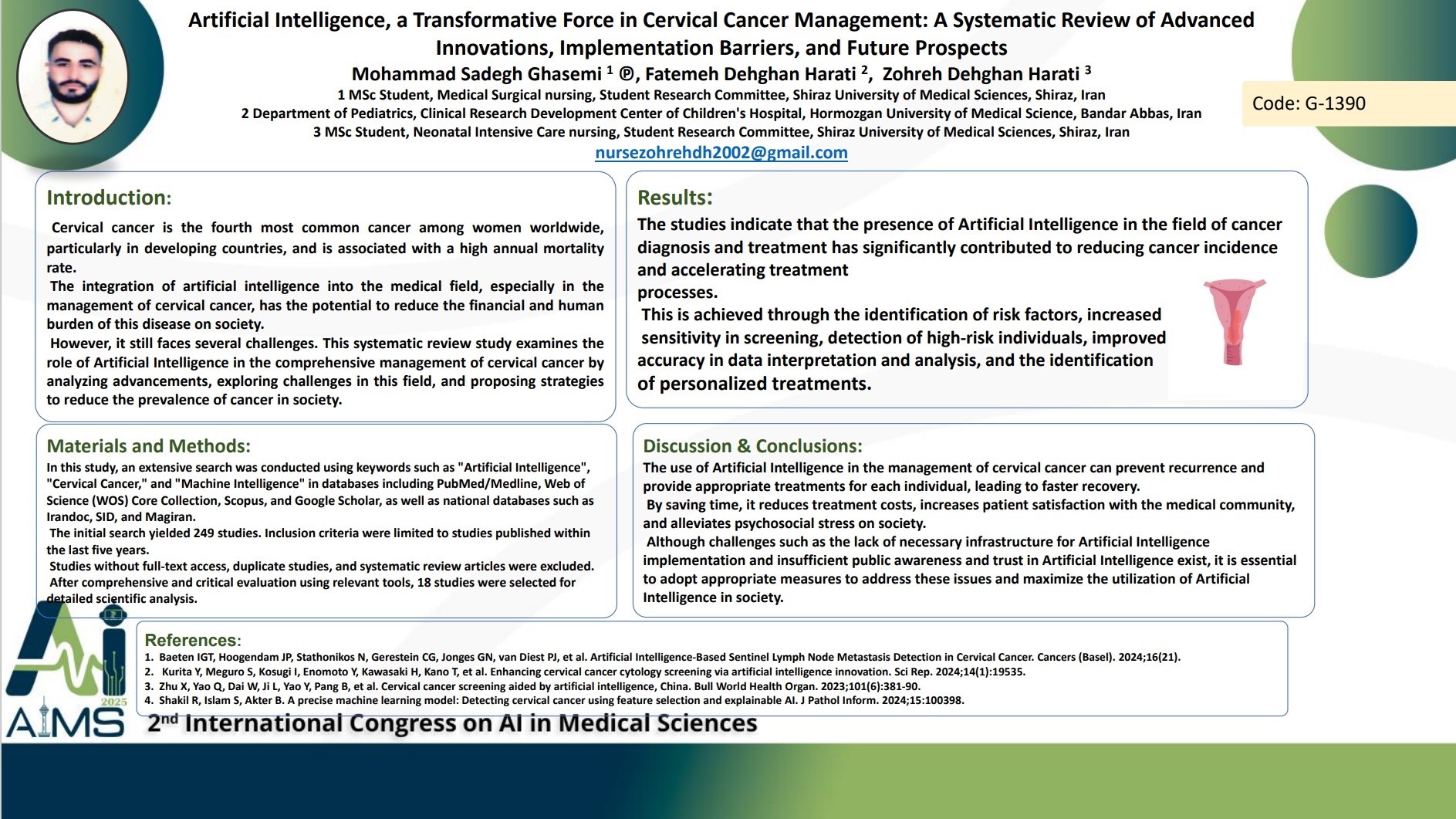هوش مصنوعی ، نیروی تحولآفرین در مدیریت سرطان دهانه رحم: مروری سیستماتیک بر نوآوریهای پیشرفته، موانع اجرایی و چشماندازهای آینده
کد: G-1390
نویسندگان: Mohammad Sadegh Ghasemi ℗, Fatemeh Dehghan Harati, Zohreh Dehghan Harati *
زمان بندی: زمان بندی نشده!
برچسب: تشخیص و درمان سرطان
دانلود: دانلود پوستر
خلاصه مقاله:
خلاصه مقاله
Background and Aim: Cervical cancer is the fourth most common cancer among women worldwide, particularly in developing countries, and is associated with a high annual mortality rate. The integration of artificial intelligence into the medical field, especially in the management of cervical cancer, has the potential to reduce the financial and human burden of this disease on society. However, it still faces several challenges. This systematic review study examines the role of Artificial Intelligence in the comprehensive management of cervical cancer by analyzing advancements, exploring challenges in this field, and proposing strategies to reduce the prevalence of cancer in society. Methods: In this study, an extensive search was conducted using keywords such as "Artificial Intelligence", "Cervical Cancer," and "Machine Intelligence" in databases including PubMed/Medline, Web of Science (WOS) Core Collection, Scopus, and Google Scholar, as well as national databases such as Irandoc, SID, and Magiran. The initial search yielded 249 studies. Inclusion criteria were limited to studies published within the last five years. Studies without full-text access, duplicate studies, and systematic review articles were excluded. After comprehensive and critical evaluation using relevant tools, 18 studies were selected for detailed scientific analysis. Results: The studies indicate that the presence of Artificial Intelligence in the field of cancer diagnosis and treatment has significantly contributed to reducing cancer incidence and accelerating treatment processes. This is achieved through the identification of risk factors, increased sensitivity in screening, detection of high-risk individuals, improved accuracy in data interpretation and analysis, and the identification of personalized treatments. Conclusion: The use of Artificial Intelligence in the management of cervical cancer can prevent recurrence and provide appropriate treatments for each individual, leading to faster recovery. By saving time, it reduces treatment costs, increases patient satisfaction with the medical community, and alleviates psychosocial stress on society. Although challenges such as the lack of necessary infrastructure for Artificial Intelligence implementation and insufficient public awareness and trust in Artificial Intelligence exist, it is essential to adopt appropriate measures to address these issues and maximize the utilization of Artificial Intelligence in society.
کلمات کلیدی
Artificial Intelligence, AI, Cervical Cancer
